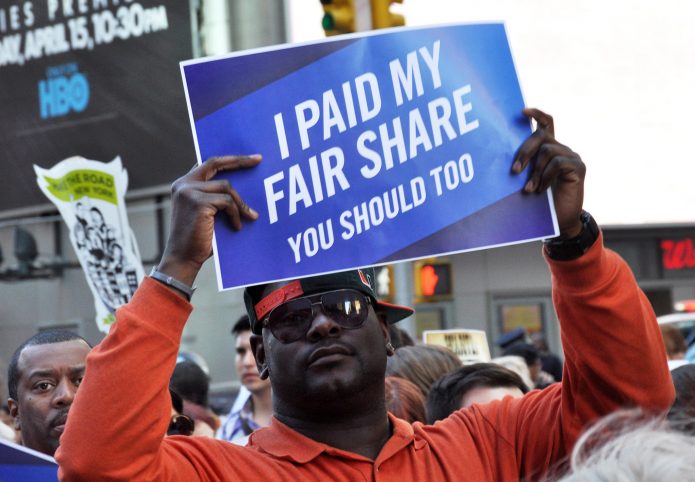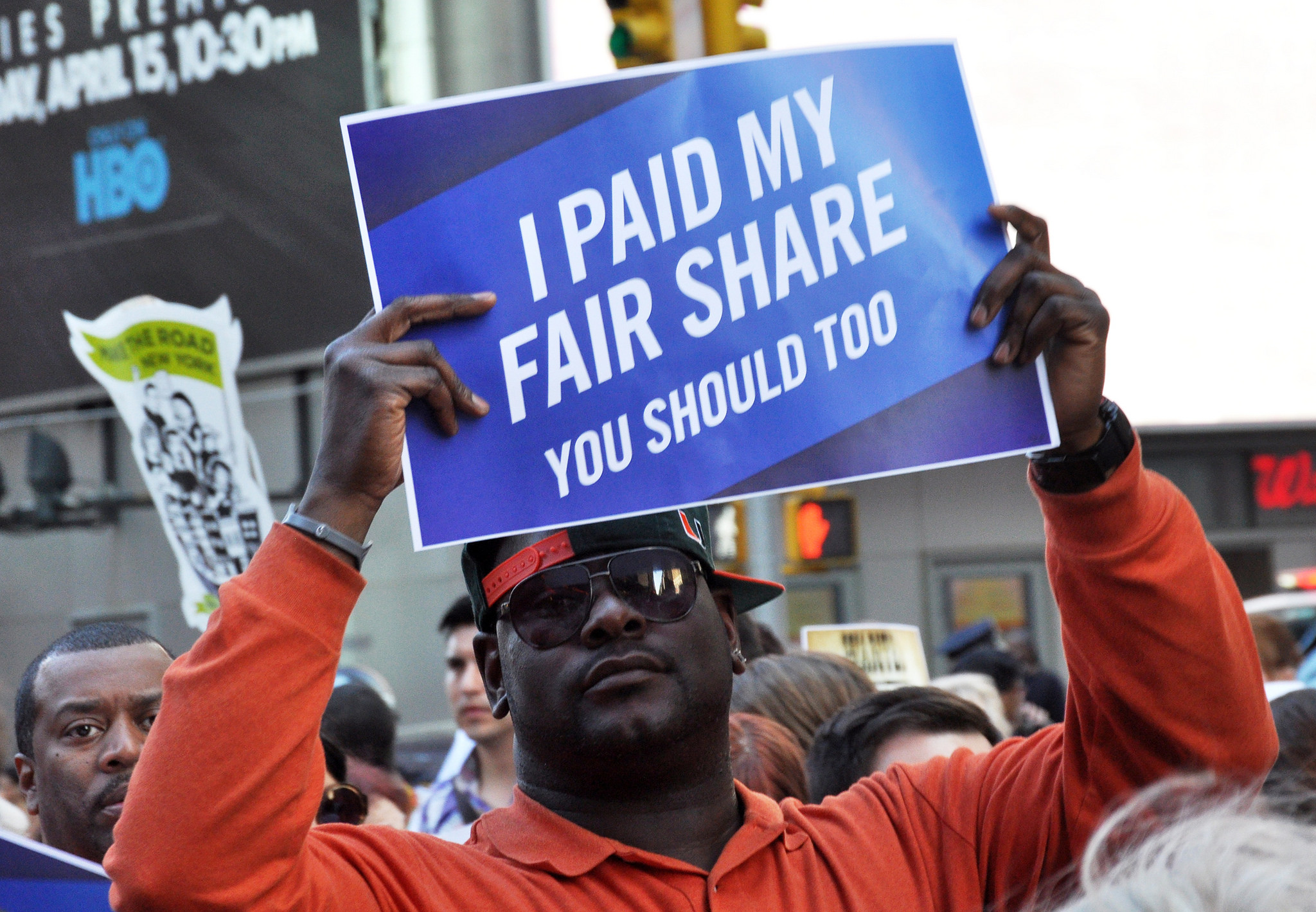
(Photo: Michael Fleshman / Flickr)
s we heard at the first presidential debate last week, Donald Trump is among the legions of wealthy investors and transnational corporations that lobby for special tax breaks and then declare they have “broken no laws.” Meanwhile, the bottom 99 percent of taxpayers and small-business owners are left to pick up the tab.
We now have a tax system where billionaires and global corporations such as General Electric and Boeing pay little or nothing toward the infrastructure, defense, national parks, and education. From the offshore tax havens, such as those disclosed by the Panama Papers, to complex trusts, loopholes, and a myriad of energy industry and real-estate tax breaks, the current rules benefit the already-haves.
The United States effectively has a two-tier federal tax system with one set of rules for the wealthy and another set for everyone else. The vast majority of people and small businesses pay taxes on wage income that is often withheld in advance. But the greater one’s income and wealth, the more opportunities there are to reclassify income and dodge taxes.
Trump declared his tax minimization makes him “smart.” In reality Trump is no genius, but he is rich enough to hire professionals in the wealth defense industry. Wealthy individuals like Trump deploy an army of trust lawyers, estate tax planners, charity advisers, accountants, specialty bankers, and tax attorneys (some of whom previously worked for the IRS), to slide past tax rules and create barriers to transparency, accountability and taxation.
In a three-page 1995 tax return obtained by The New York Times, Trump reported a $916 million loss on his business ventures. This net operating loss, which could be spread over the previous two years and subsequent 15 years, probably eliminated all his income-tax obligations in those years, according to David Cay Johnston, who won the Pulitzer Prize for his tax reporting at The New York Times, and prominent tax experts Edward Kleinbard of the University of Southern California and Martin J. McMahon Jr. of the University of Florida. Without more information, tax analysts cannot determine if these were legitimate losses or fabrications. Trump should disclose his complete tax returns if he has nothing to hide on this front.
…
